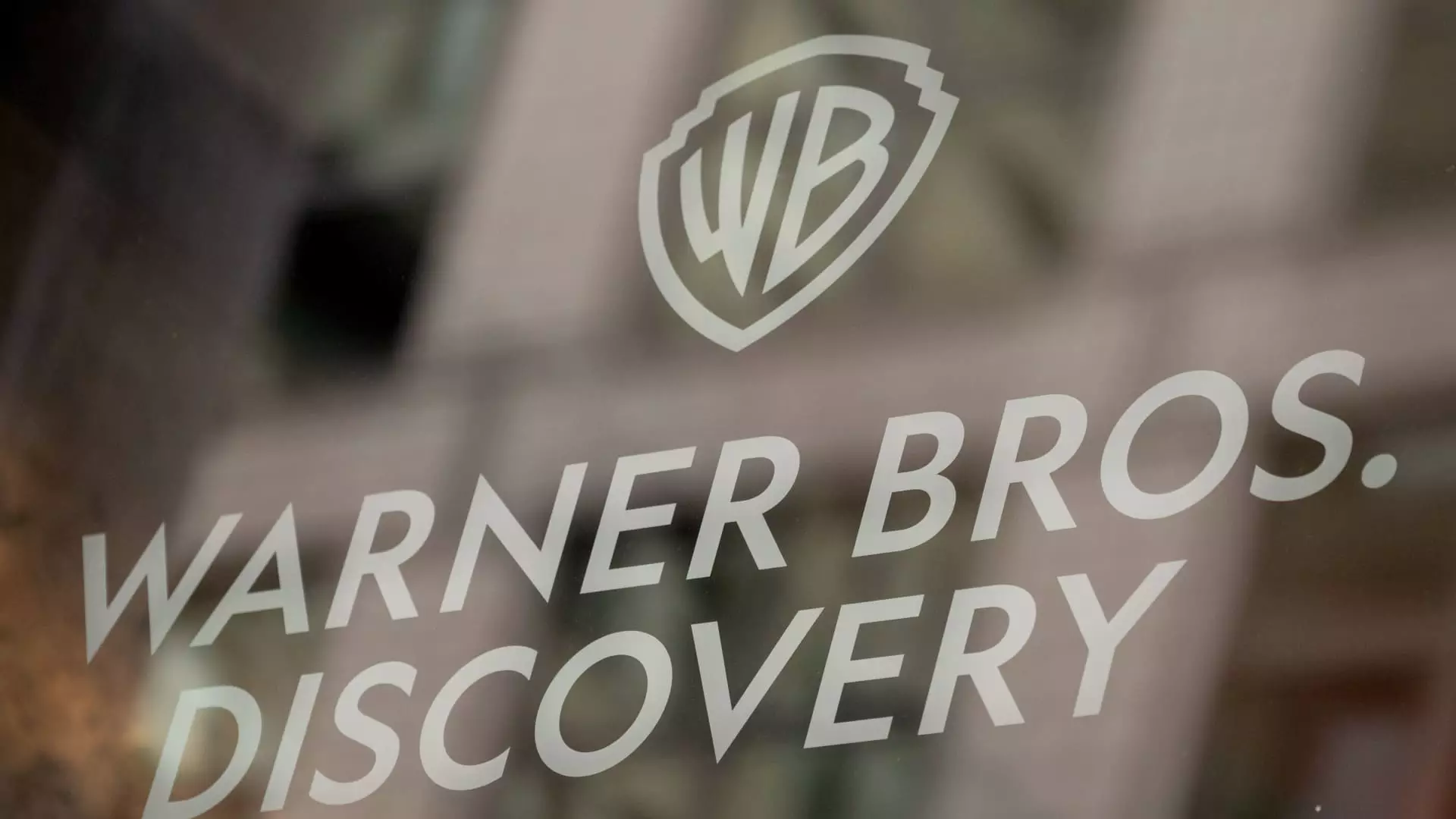The recent surge of speculation surrounding Paramount Skydance’s alleged readiness to acquire Warner Bros. Discovery reveals much more than a simple business manoeuver; it exposes the fragile state of the media industry. An industry that has long relied on tightly controlled bundles of content—be they cable subscriptions or blockbuster movies—is now buckling under the weight of rapid technological change and shifting consumer preferences. The possibility of a takeover bid, especially an all-cash deal, signals a willingness among major players to risk enormous amounts of capital in hopes of capturing a dominant position in a transforming landscape. But at what cost?
The apparent eagerness of Paramount Skydance to propose such a bold move underscores a reckless pursuit of market dominance that ignores the seismic shifts in how content is consumed. As streaming services dismantle the traditional pay TV hierarchy, consolidations of this magnitude threaten to entrench monopolistic tendencies that could stifle competition, innovation, and, ultimately, consumer choice. This sudden spike in market activity is far from a mere strategic choice; it’s an alarm bell ringing about the fraying fabric of an industry struggling to adapt without sacrificing core values of fairness and plurality.
Industry Shake-Ups: A Pattern of Hasty Corporate Strategy
Throughout recent years, the pattern of hurried mergers and divisive spin-offs indicates a broader crisis of identity within major media conglomerates. Warner Bros. Discovery’s planned split into separate entities—one focusing on traditional television networks and another on streaming and studios—aims to adapt but also illustrates a clear struggle to reconcile old business models with new realities. Meanwhile, other giants like Comcast have spun off assets to streamline their operations, revealing an internal debate about the future structure of media assets.
These actions suggest a landscape where companies are desperately trying to find a profitable niche amid the chaos, often at the expense of long-term stability. The recent merger between Paramount and Skydance, approved after considerable regulatory delays, appears to be a shot across the bow—a signal that these corporate titans will stop at nothing to secure leverage and control. Yet, even with these aggressive moves, the industry appears to be circling the drain, with the costs and risks rising exponentially.
It is worth noting that such rushes for consolidation often benefit a few at the expense of many—advertisers, consumers, and smaller competitors—who become increasingly marginalized as corporate giants amass more power. The risks associated with a headline-grabbing bid for Warner Bros. Discovery extend beyond the financial; they threaten to deepen media monopolization and diminish the diversity of voices and content that have historically enriched the industry.
Consolidation or Collapse? A Question of Responsibility
Supporters of mergers argue that they are necessary for survival in a hyper-competitive, rapidly evolving market. They claim that only by combining resources can these colossal entities innovate and survive in a landscape dominated by nimble streaming startups. However, such logic ignores the broader societal implications: an industry that consolidates unchecked can become a gatekeeper of information, culture, and entertainment, eroding the democratic diversity that should define a free press and vibrant creative sector.
From a liberal center-wing perspective, this ongoing race for dominance is troubling. It reflects a perilous prioritization of shareholder profits over societal good. When media companies consolidate so aggressively that they control vast swathes of heartland news, sports, and entertainment—the essential ingredients of public discourse—the democratic fabric begins to fray. The pursuit of dominance at such high stakes risks creating a media environment where influence becomes concentrated in the hands of the few, undermining accountability and transparency.
Moreover, the strategic moves like Warner Bros. Discovery’s divestitures and Paramount Skydance’s pursuit of a takeover highlight a fundamental tension: the desire to preserve content legacy versus the necessity to adapt. But these moves often prioritize short-term gains over long-term societal benefits, leading to a media ecosystem increasingly shaped by corporate interests rather than public needs. True progress demands cautious, responsible innovation—not reckless corporate gambles motivated solely by survival instincts and profit margins.
A Future Shaped by Power, Not Purpose
If history is any guide, the media industry’s relentless pursuit of consolidation threatens to transform the sector into an arena dominated by monopolies that prioritize greed over cultural enrichment. While critics rightly fear the erosion of competition, the broader concern lies in the potential loss of media pluralism. When a handful of conglomerates control the lion’s share of popular content, the cultural landscape risks becoming monochromatic, sterile, and disconnected from the diverse realities of everyday life.
The industry’s current trajectory raises questions about corporate responsibility and accountability. Are these moves designed purely to safeguard profits, or do they serve a genuine purpose in innovation and societal value? From my vantage point, the trend leans heavily toward the former, with little regard for the broader implications on society, democracy, or even the cultural sector’s health.
In an era where public trust in media is already waning, these aggressive power plays risk further alienating audiences, leading to a vicious cycle of distrust and disconnection. Instead of fostering a media landscape that reflects the multifaceted nature of society, current trends tend to push toward homogenized content aligned with corporate interests—an unhealthy direction for any democratic society aspiring to cultural vitality.
Since the industry is at a critical crossroads, perhaps it is time to question whether these relentless pursuits of consolidation serve the public good or merely serve the interests of a few powerful corporate entities. History suggests the latter, making it imperative for regulators, policymakers, and public advocates to step in before the industry’s transformation into a media monolith becomes irreversible.

